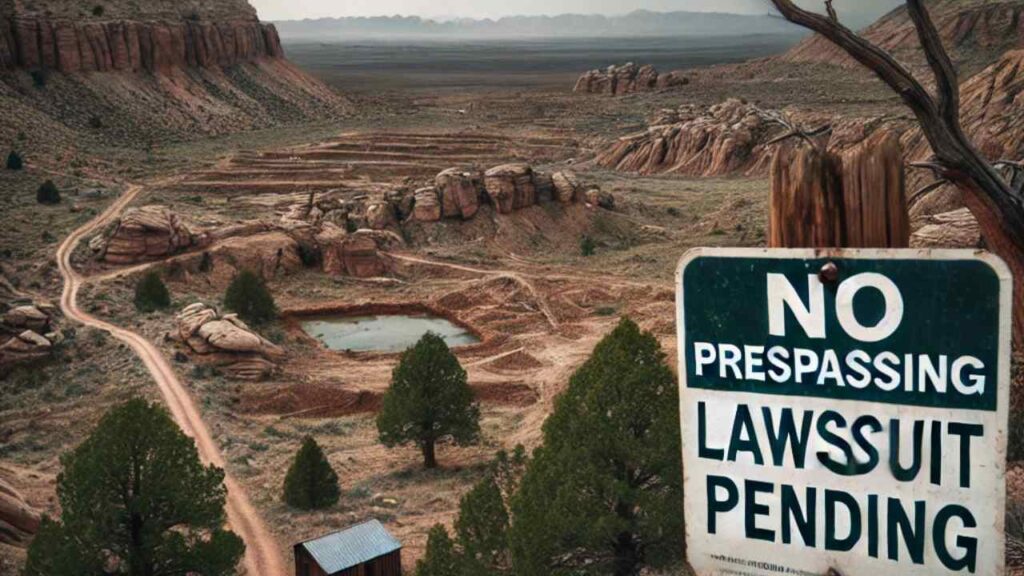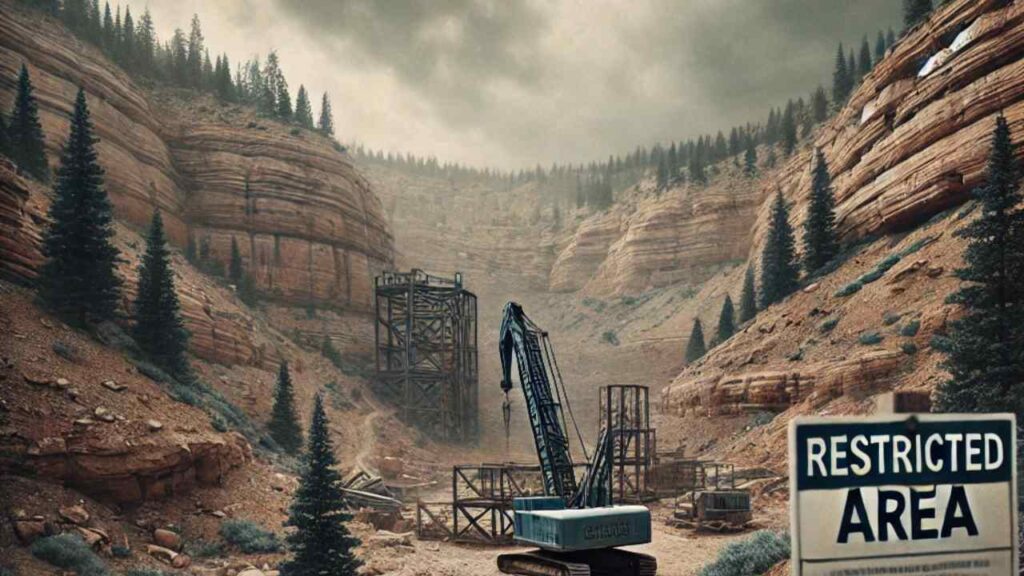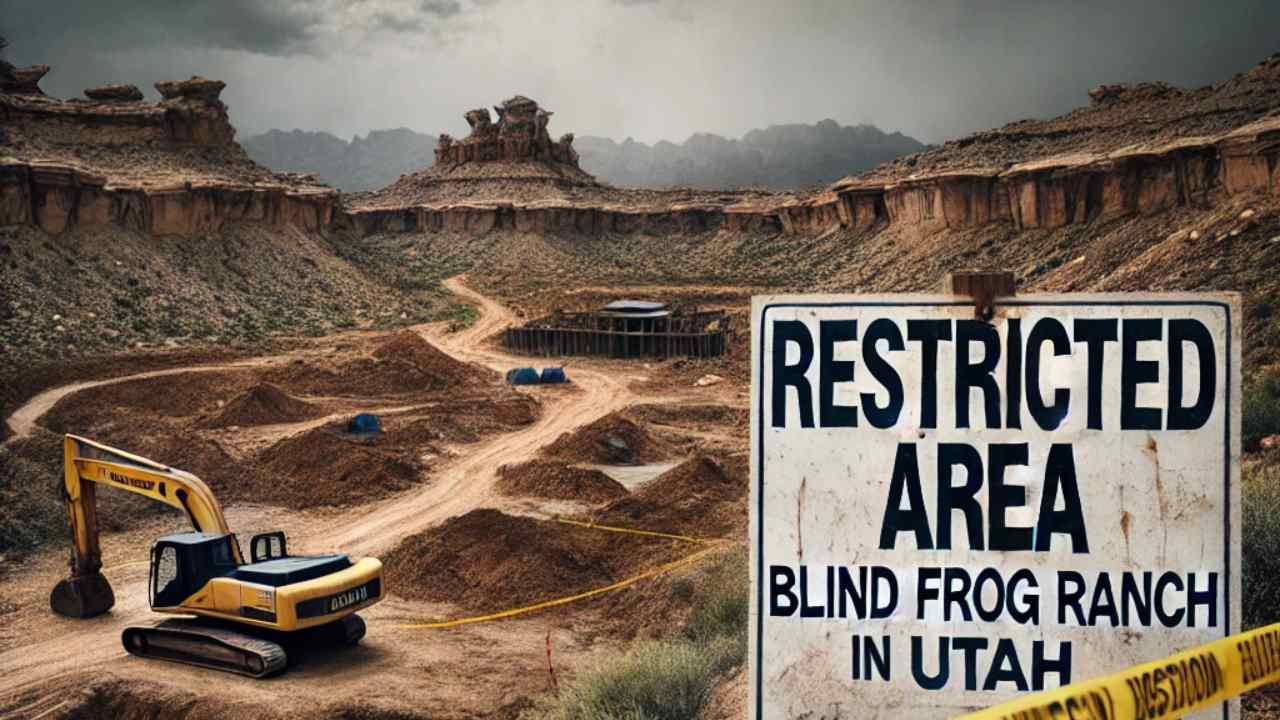You might have heard about the mysterious Blind Frog Ranch in Utah. It’s a place filled with stories of hidden treasures and strange discoveries. However, recently the ranch has become the center of attention not just because of its treasure-hunting adventures but due to a serious lawsuit. The honor of the ranch Duane Ollinger is under scrutiny. The case revolves around property rights, environmental concerns, and accusations of unauthorized mining. Let me walk you through the latest update so that even if you’ve never heard of it before, you’ll understand the whole story!
Contents
- 1 Background of Blind Frog Ranch
- 2 Key Players Involved
- 3 Core Legal Issues in Lawsuit
- 4 Latest Update in Evidence and Testimonies
- 5 Governmental Agencies’ Role in the Dispute
- 6 Public Reaction and Support
- 7 Local Community’s Perspective
- 8 Expert Opinions
- 9 Potential Consequences of the Lawsuit
- 10 Conclusion
- 11 Frequently Asked Questions (FAQs)
Background of Blind Frog Ranch
Blind Frog Ranch is located in a remote part of Utah, and it has always been surrounded by mystery. Duane Ollinger is the owner of the ranch. He believes there are treasures beneath the ground, like gold, ancient artifacts, and other valuable items. The ranch became even more famous after it was featured on the TV show “Mystery at Blind Frog Ranch.” Viewers watched Ollinger and his team dig deeper into the land and hoping to strike it rich.
Well, it’s not just the treasure stories. The land itself is very unusual. The soil, rocks, and even the water have strange properties. This has made many people curious, and that’s why so many explorers, researchers, and even treasure hunters come here. However, this search for treasure has led to more than just exciting discoveries as it has also sparked controversy and legal battles.
Key Players Involved
The central figure in this story is Duane Ollinger, who owns the ranch and firmly believes in the existence of treasures buried beneath his land. But he’s not the only one here. Various groups are now part of this dispute, including local authorities and environmental activists. Even governmental agencies like the Environmental Protection Agency (EPA) and the Utah Department of Natural Resources are following. These agencies are concerned about whether Ollinger’s activities are harming the environment.
There are also the ranch’s fans, who argue that Ollinger should have the freedom to explore his own property. Meanwhile, critics believe that private ownership should not excuse damage to the land and water.

Timeline of Events
Here’s a quick breakdown of how things got to this point:
- Discovery and Exploration: Duane Ollinger bought the ranch and started searching for treasures, believing there are riches underground.
- TV Show Debut: The show “Mystery at Blind Frog Ranch” gained popularity, showing the adventures of digging and exploration.
- Complaints Surface: As the digging intensified, critics began raising concerns about possible environmental damage.
- Lawsuit Filed: Legal actions were taken against Ollinger, accusing him of causing harm to the environment.
- Governmental Investigations Begin: Agencies like the EPA started investigating whether the ranch’s activities are breaking any environmental laws.
Core Legal Issues in Lawsuit
The lawsuit revolves around two main issues: property rights and environmental protection.
The people who filed the lawsuit believe that digging on the ranch could damage the land and water. They say that Duane and his team might be breaking some rules. On the other hand, environmentalists and government agencies are worried too. They believe that just because someone owns a piece of land, it doesn’t mean they can damage the environment. They are especially concerned about the effects on water quality, wildlife habitats, and soil integrity.
Meanwhile, Duane Ollinger argues that he has the right to explore his own land and search for treasures. He believes that any discoveries made could even change how we understand parts of American history.
Latest Update in Evidence and Testimonies
The latest update in the lawsuit includes a lot of evidence from both sides. Critics of Ollinger’s activities have shown photos of holes and damage to the land. They’ve also presented expert opinions about how digging might affect the local environment. Meanwhile, Ollinger and his team argue that they are doing everything they can to protect the land. They’ve brought in their own experts to testify that the mining and exploration activities are being done responsibly.
Governmental Agencies’ Role in the Dispute
Several government agencies, like the EPA, have stepped in to investigate the ranch’s activities. They’re concerned that the digging might be polluting water sources and harming wildlife. The Utah Department of Natural Resources is also involved, making sure that any exploration follows state laws. If they find Ollinger’s activities illegal, he could face fines or orders to stop his operations.
This legal battle is not just about one ranch; it could influence how similar cases are handle in the future. If Ollinger wins, it might mean that landowners have more freedom to explore their properties. But if he loses, it could lead to stricter regulations across the country.
Public Reaction and Support
The lawsuit has caught the attention of many people, especially treasure hunters, historians, and environmentalists. Supporters of Ollinger argue that he should be free to explore his property. They see his discoveries as potentially important to American history.

However, there’s a strong group of critics who think otherwise. They believe that no one, not even a private landowner, should harm the environment for personal gain. Social media is full of heated debates on this topic, with many people wondering if the thrill of treasure hunting is worth the damage to nature.
Local Community’s Perspective
For the people living near the ranch, this lawsuit is a big deal. Some locals are excited because they think the treasure hunt could bring fame and tourism to their small town, which would boost the local economy. But others think the opposite way. They don’t want their water to be contaminated or their peaceful lives disturbed by noisy digging and dust.
Community meetings are going on where residents voiced their concerns. Many are asking for more transparency from Ollinger and his team to ensure that the exploration doesn’t harm their environment.
Expert Opinions
Legal analysts following the Blind Frog Ranch lawsuit are divided on the possible outcomes. Environmentalists are upset about the damage could be done to the land. They say that once you harm the soil and water, it’s very hard to fix it.
On the other side, some legal experts think Duane might have a good case. They believe property owners should have more freedom to use their land. It’s like a tug of war between protecting nature and allowing people to do what they want with their property.
Potential Consequences of the Lawsuit
The latest outcome of this lawsuit could have huge effects on how property rights and environmental laws are tackle in the future. If Ollinger wins, it could encourage other landowners to explore and mine their properties with less oversight. But if he loses, it might lead to more regulations, not just in Utah but across the whole country.
Ollinger could also face serious consequences, such as fines or strict orders to restore any spoil areas from his digging.
Conclusion
To sum it all up, the Blind Frog Ranch lawsuit is about much more than just hidden treasures. It’s a complex battle between property rights and environmental protection. Duane Ollinger wants to find treasures that could change history, but he’s up against people who want to protect nature.
The case is still ongoing, and the final decision could change how landowners use their property in the future. For now, everyone is waiting to see what the court will decide.
Frequently Asked Questions (FAQs)
The main person is Duane Ollinger, along with government agencies like the EPA, and critics concerned about environmental damage.
It’s not just about finding treasure—it’s also about property rights and protecting the environment.
He might have to stop digging, pay fines, or fix any damage done to the land.
Some people are excited about the potential for tourism, but others worry about the impact on their environment.
No, Blind Frog Ranch is private property. It became famous through TV shows but there is no public due to ongoing legal issues.
Speculations include ancient artifacts, Spanish gold, and Native American relics. However, none of these are authentic yet.
Even if a property is private, landowners must comply with environmental regulations to protect public interests and natural resources.
Yes, the outcome could set legal precedents that impact property rights and resource extraction laws for other landowners in Utah.

